Choose Optometry
Optometry at Manchester
We continually update our courses in line with the constantly evolving role of the optometrist.
Study in our modern £4 million optometry facilities at the institution with the longest tradition of teaching optometry in the UK, and which is ranked 2nd in the UK for optometry, ophthalmics and orthoptics (Complete University Guide 2025).
Start to examine patients from Year 1 and benefit from our strong links with neighbouring Manchester Royal Eye Hospital, one of the most prestigious eye teaching hospitals in Europe.
From our students
My experience as an Optometry student at Manchester
Year 2 student Aleen reflects on her Manchester experience so far.
Read the blog : My experience as an optometry student at The University of Manchester.

Following my passion for all sciences on the Optometry course
Suman talks about why she chose optometry and her experience of studying at Manchester.
Read the blog : Following my passion for all sciences on the BSc Optometry course.
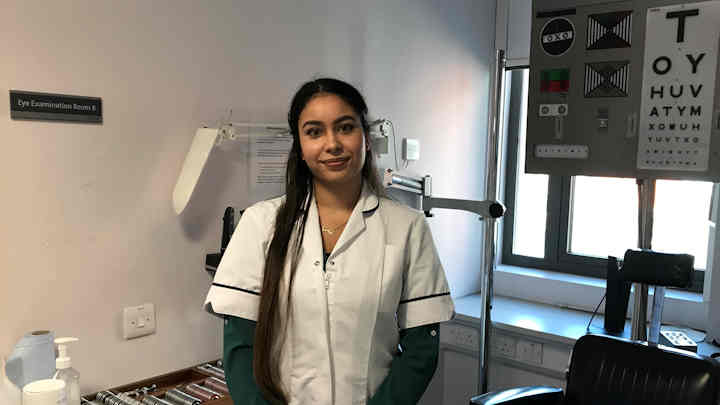
Representing students for the Association of Optometrists
Hajra discusses exploring optometry outside of a university setting in her student rep role.
Read the blog : My role as a student representative for the Association of Optometrists.
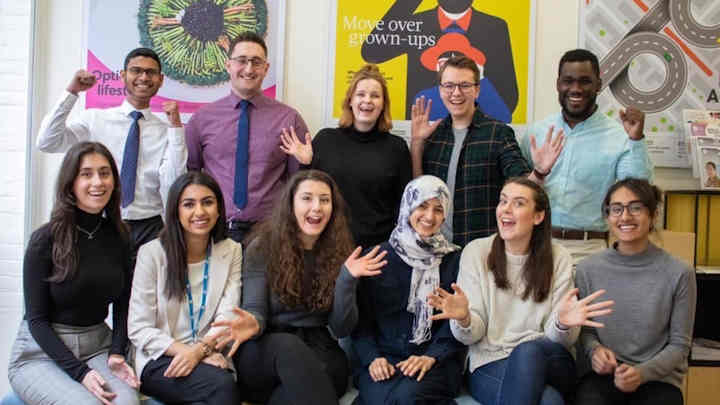
Careers
Employability
Get ready for a successful career as a clinical optometrist, or set the wheels in motion for an alternative career in the optical industry or as a researcher.
Learning and support
Clinical and practical experience
You’ll begin to apply your knowledge with patient interaction from your very first year.
The amount of time dedicated to clinical practice will then increase as you progress through the course.
- Semester 1 focuses on preparing you for academic success and university life, introducing the scientific principles of optometry such as light properties, eye anatomy, and vision processing.
- You will collaborate with peers to apply acquired knowledge to clinical cases, considering ethical, legal, and scientific dimensions.
- Practical sessions will aim to develop your skill in using optometric instruments and assessing ocular function.
- In the second half of the year, you will delve deeper into optometry principles, including scientific, legal, and ethical aspects, with interactive sessions allowing you to practise and enhance your skills.
- You will be introduced to subjects like human disease processes, pharmacology, contact lens practice, and binocular vision, and will apply this knowledge to clinical cases alongside peers.
- Your understanding of optics, ophthalmic appliances, and optometric instrumentation will grow further, and you will work in teams treating real patients at the Manchester Optometry Clinic.
- You will have the opportunity to undertake short external clinical placements at the end of your second year.
- You will take on a greater role within the team in the Manchester Optometry Clinics, with increased responsibilities and exposure to various clinics at Manchester Royal Eye Hospital.
- There will be opportunities for short clinical placements outside the University, and you will begin applying clinical and scientific research to patient management, becoming an evidence-based practitioner.
- You'll examine the impact of technology, including artificial intelligence, on professional practice.
- You will develop your ability to lead on personalised patient management within the Manchester optometry clinics in an evidence-based way, aided by technology.
- You will have the opportunity to specialise in clinical or scientific areas while further developing in clinical abilities through placements at Manchester Optometry Clinics, Manchester Royal Eye Hospital, or external sites.
- The focus of this year is on becoming proficient in all core areas of optometry in order to qualify for registration with the General Optical Council by the end of the academic year.
Personal and professional development
Throughout the course, you’ll attend small-group sessions to help you develop transferable skills to support your learning. You'll become familiar with the profession of optometry in the UK and abroad, enabling you to become a well-developed practitioner of the future.
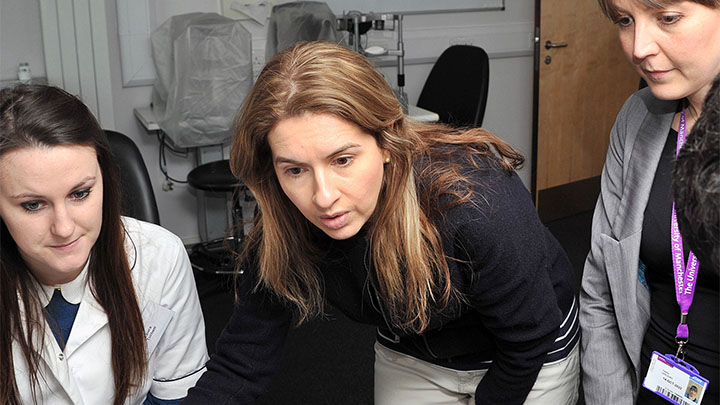
Service learning
Work in collaboration with community groups, organisations and schools to expand your skills and knowledge through service learning.

From our students
Ahmad's optometry placement
Watch the video to find out about Ahmad's placement at the Manchester Royal Eye Hospital.
Practical learning on the Optometry course
Final year student Emily talks about hands-on learning at Manchester.
Read the blog : Learning practically at The University of Manchester
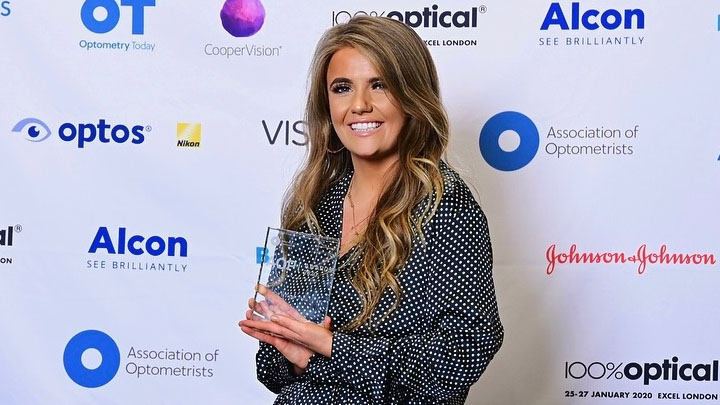
Learning environment
Research strengths
You’ll be taught by research and clinical leaders in optometry. Our internationally recognised research focuses on optics and refraction, the cornea, tear film, low vision, and visual psychophysics. It includes Eurolens Research, a world-renowned facility that undertakes research for the optical industry.
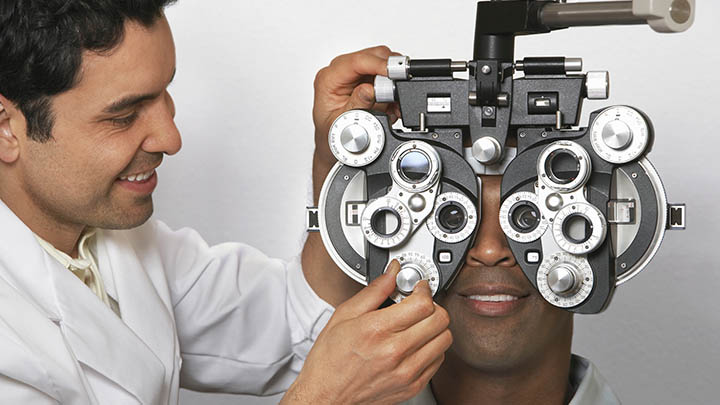
Cutting-edge facilities
Student Suman takes you on a tour of the optometry facilities here at Manchester. Join her as she shows you around the examination rooms, dispensing and optics labs, consulting rooms and dispensing clinic.
Course information
Optometry degrees
Find out more about studying optometry at Manchester on the following course page.
- Optometry (MSci) with integrated master's (4 years)
Making an application
Apply for optometry
If you're ready to apply to the optometry degree at Manchester, here's what you need to know.
If you have any questions, email us at ug.optometry@manchester.ac.uk.
Contact us
In the Biosciences section
Undergraduate information
There's more to discover about becoming an undergraduate on our Faculty and main University websites. Here are some links to get you started.
